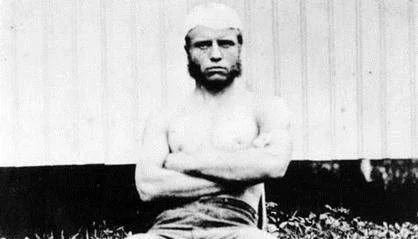Young Theodore Roosevelt was a fairly sickly child. Stricken with asthma, even menial tasks would spark serious reactions in his lungs that were life threatening. Yet he became one of the most successful presidents this country has ever seen.
How did he overcome such a hardship?
In his book, "The Obstacle is the Way," author Ryan Holiday describes a turning point in young Roosevelt's life.
By age twelve, Theodore Roosevelt had spent almost every day of his short life struggling with horrible asthma. Despite his privileged birth, his life hung in a precarious balance—the attacks were an almost nightly near-death experience. Tall, gangly, and frail, the slightest exertion would upset the entire balance and leave him bedridden for weeks.
One day his father came into his room and delivered a message that would change the young boy’s life: "Theodore, you have the mind but haven’t got the body. I’m giving you the tools to make your body. It’s going to be hard drudgery and I think you have the determination to go through with it."
You’d think that would be lost on a child, especially a fragile one born into great wealth and status. But according to Roosevelt’s younger sister, who witnessed the conversation, it wasn’t.
His response, using what would become his trademark cheerful grit, was to look at his father and say with determination: "I’ll make my body."
So with this physical exertion and painful work devoted to improve the working of his lungs, he didn't complain. He just knew what he needed to do and got to work. Clearly he had an advantage over most boys without access to the wealth the Roosevelts had. Regardless, it took a special kind of mental fortitude to achieve the physical vitality to match that of his brain.
So what I'm saying here isn't that you don't necessarily need to devote your life to boxing and strenuous physical activity. Maybe you just need to find that one moment in your life that you can recall being on top of it all. In my case, I've recalled a few of those moments of struggle and made a serious attempt to meditate on what those moments meant to me and how I was able to take a difficult situation and rise to the occasion.
So here's what I do to start my day.
After I wake up, I meditate for five minutes on how these moments of triumph made me feel and reflect on why they made me so proud. Often, my body fills with memories of the work that it took to accomplish and what I needed to change the next time in case I failed. AND most importantly, I exercise gratitude, but I'm never satisfied.
So... what is that moment for you?
- Finishing a gruelingly hot half-marathon?
- Acing an exam?
- Leaving an abusive relationship and starting a new life?
- Overcoming physical and mental hardships?
What is that moment for you? Take a few minutes per day to pause and reflect on those moments of personal triumph, pride and accomplishment.
Upon self reflection, you'll find that you've probably accomplished more in your life than you realized. And although your triumphs aren't necessarily something as debilitating as childhood asthma, your self-confidence will thank you.
~~~
SOURCES:
For further reading on T. Roosevelt, I highly recommend Doris Kearns Goodwin's fantastic book, "The Bully Pulpit: Theodore Roosevelt, William Howard Taft and the Golden Age of Journalism."
For a nice modern take on Stoic thinkers, I'm a big fan of Ryan Holiday's "The Obstacle is the Way: The Timeless Art of Turning Trials into Triumphs."



